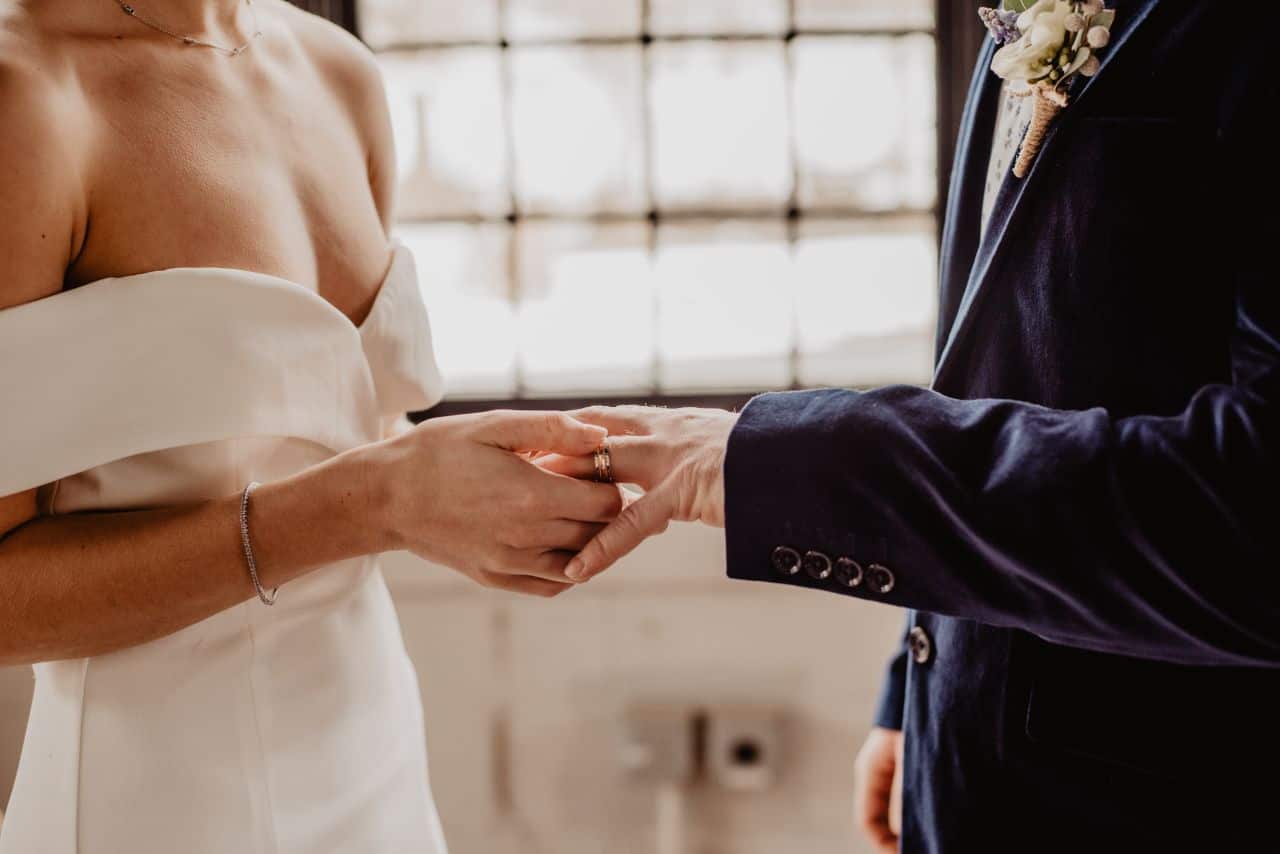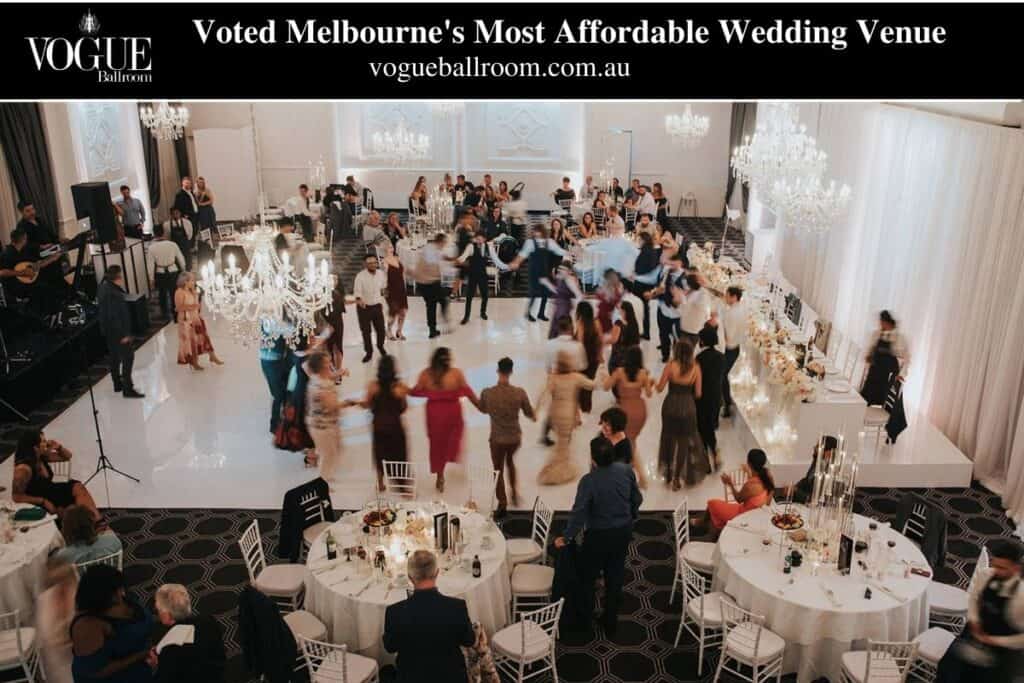Choosing a wedding date is a pivotal step in the planning process, as it will have far-reaching effects on every facet of your big day. However, you cannot make any firm plans for the wedding itself until you have settled on a date. You may be wondering, "Where do I even begin?" or "How do I choose a date that works for everyone and is yet unique to me?"
Your significant other proposed, and you immediately answered "yes" without even looking at the ring. However, you should not rush into picking a wedding date. In spite of the fact that you and your intended may be set on a specific wedding date, there are actually quite a few external elements that must be considered. When planning the schedule for your wedding, bear in mind that while it is your big day, it is also about sharing that day with the people who mean the most to you.
What factors should you consider while picking a wedding date? Start with the people who really matter, including your parents and anyone else who will be helping out financially with the wedding. If you and your future spouse are keen on getting married in a particular season, pick a range of dates that works for you, and then have your parents, siblings, and other important relatives email you a list of precise dates that they aren't available within that timeframe. Make a calendar and cross out the dates that won't work, giving you a range of possibilities when the most important guests can all be present.
Don't forget to add in any existing engagements you two have, and have your parents put a hold on any and all potential wedding dates until you've decided on one.
Table of Contents
Choosing a Date
Look over the calendar and see if there are any days that hold any significance for you and your partner.
Numerous couples choose their wedding day to commemorate a significant event in their lives, such as the groom's or bride's birthday, the two people's first date, the first time they went on a date, or their first kiss. Start making calls to potential locations and service providers as soon as feasible if a particular date is of paramount importance. Depending on the popularity of a specific venue, wedding dates may need to be reserved as far in advance as a few years.
Choose a Wedding Season or Month
If you are flexible with the date, consider the seasons you enjoy the most. Could you please provide a prefered wedding season and month? Choosing a wedding date is the first step because it affects everything from the location to the colours to the theme to the food. After settling on spring, summer, fall, or winter, you can pick a certain month.
When you've decided on the time of year, pick a specific month within that year to exchange your vows. How much of a role does the weather play in choosing your wedding date? Consider the changes in weather, the calendar of holidays, and other monthly occurrences. Pick the one that gets the job done with the least amount of hassle for you.
Take a look at your calendar for the next 30 days. Do you have any major conflicts or time commitments that you can't get out of? First and foremost, try to avoid scheduling any major events on days when both of you will be otherwise committed.
Look at the Day of the Week
The overpriced timeslots are on Saturdays because that is when most weddings take place. Some restaurants may charge a surcharge for Saturday night reservations. More and more couples these days are opting to have their nuptials on nontraditional days, such as Fridays, Sundays, or even in the middle of the week. If you're flexible with the wedding date, you may be able to stretch your wedding budget much further.
Choose Between Indoor and Outdoor Weddings
If you want to have your wedding outside, you must consider the season. Consider the dress. Some climates may prevent the bride from wearing her ideal dress.
Check Weather
Once you've settled on a season or a certain month for your wedding, it's time to start thinking about the weather. Think about things like tornado and hurricane seasons while choosing a wedding site. Your beach wedding plans may go awry if you choose a date in the middle of the tropical storm season.
Budgeting
The cost of a wedding ceremony is typically higher during summer than at other times of the year. There are periods of the year when some places, especially popular tourist spots, may be busier and more expensive. Think about who will be footing the bill for the wedding expenses; you and your fiance, or your parents.
- The idea that you have to settle for a low-cost wedding on a snowy Wednesday in December is false. The key to having the wedding of your dreams may just be to start saving and planning early on.
- Rental cars, hotel rooms, and plane tickets all increase in price significantly over holiday weekends. Keep in mind that the high cost of plane tickets may prevent some far-flung or international guests, such as friends and family, from attending.
When to Pick a Wedding Date
Each couple will have their own unique way of determining when to tie the knot, but a good place to start is by thinking about how much time you'll need to organise your spectacular big day.
Most engaged couples benefit from having at least six months to a year to prepare for their wedding. Planning your wedding a year in advance will allow you more time to do everything from locating and purchasing your dress (which can take 9-11 months) to reserving a venue for the reception (some are booked a year in advance).
Speaking of which, before setting your heart on a specific day (or making your save-the-dates), you should find your favourite venue and check what dates they have available.
On the other hand, if you tend to worry excessively about major projects, a wedding in the far future may cause undue stress. Here, a shorter involvement could be the best option. There is no such thing as an incorrect response. Six months after getting engaged is a short amount of time to plan a wedding, but you'll figure something out. Some people just thrive under pressure.
You Get To Choose the Season
The atmosphere you want to create at your wedding might be affected by the weather, which will also determine the style and location of your big day. Think about what kind of wedding you want and then pick a season. Have a hankering for cocktails with a tropical twist and a shady patio to enjoy them in? Keep the ceremony during summer time. Imagining a white Christmas with all the trimmings of richness and glitter? Consider having your wedding in the colder months. You should have a spring wedding if you want freshness, pastels, and a daffodil bouquet, and a fall wedding if you want rich colours, nostalgia, and mulled apple cider.
What Is the Cheapest Month to Get Married?
To some extent, your wedding date selection may be determined by your financial resources. There is an obvious price increase in high-demand months for weddings, such as June, September, and October. There will be a lot of other engaged couples looking for the same venue and the same set of services that you need. In addition to being a wedding boom month, February also features a slew of celebrations dedicated to love and family in the form of Valentine's Day and the Christmas season.
A wedding can be expensive, but if you plan it for an off-month, you can save money and have more options for the ceremony and reception. Weekends are more expensive than weekdays for weddings, but if you tie the knot during the week, you can have your pick of venues.
Wedding Date Basic Tips
Here are some factors to consider when choosing a wedding date, regardless of whether you have a specific date in mind, a favourite season of the year, or no preference at all.
- When is the earliest acceptable time to plan a wedding? In general, the earlier you start arranging your destination wedding, the better. Aim for a date that is at least a year away. It's polite to give your guests (and yourself) at least six to twelve months' notice if your wedding is going to take place locally. However, if you're only inviting close friends and family from the area, a "mini wedding" can be prepared in under six months.
- Which comes first, picking the wedding date or picking the wedding location? The quick solution is to follow your own lead. If you and your fiancé have your heart set on a particular wedding location, plan your big day around when that location is available. It's important to remember that the more time you give yourself to find a wedding venue, the more dates you'll have to work with. If your wedding date is flexible but you're not, it's a good idea to call out to potential venues to see what's out there. The key, once again, is meticulous preparation, as this may require you to get in touch with a large number of potential venues. It is more likely that you will be able to book a wedding venue on the day of your choice if you book it as early as possible after settling on a wedding date.
- Do you think a holiday or long weekend would be better for your wedding? Keep in mind any major celebrations, holidays, or three-day weekends that may fall on the potential wedding date. The combination of these factors can lead to a lack of available hotels, higher flight prices, more expensive services, and sold-out shows and other events. If you have your heart set on getting married on Valentine's Day or Labor Day weekend, then by all means go for it and don't allow anyone stand in your way.
- What if some of my guests are advising potential suitors? Don't put too much stock in the opinions of friends and family who say they can't make it on specific dates. Pick a date, accept that others will have to work around it, and accept that you cannot make everyone happy. Don't forget that today is your wedding day!
- Is it more expensive to tie the knot in a given month? In the United States, the months of June through September are the most popular times for weddings. It's not a surprise that prices for wedding venues and wedding vendors will climb at that time of year due to the corresponding increase in demand. However, if you plan ahead and have your wedding on a Friday or Sunday outside of the peak wedding season, you can save a lot of money. The date of your wedding could be determined by your financial resources.
A place of worship and a hotel, for example, will serve as the settings for your ceremony and reception, respectively. Your chances of being able to get married in your childhood church increase if you give yourself a few different dates to work with; this means you won't have to settle for Option D on your reception venue list. When you take these factors into consideration, it's much less likely that you'll have to postpone your wedding for a year or more simply to find the perfect venue.
After looking at a number of possible locations, you can finally commit to the one you've chosen. Reserve the venue with a deposit, inform the important people in your life of the date you've decided on, and start the wedding planning!
FAQs About Picking Weddng Date
If you'd like to get married in under a year, we recommend securing your date about four weeks after getting engaged. Allow enough time to speak with family and friends regarding the best date and any prior commitments.
- Choosing a Date.
- Plan around your honeymoon, if you plan to take one.
- Pick the season or the month in which you'd like to get married.
- Consider the day of the week.
- Decide whether you want to be married indoors or outdoors.
- Research the weather.
- Think about how long you'd like to be engaged.
- Consider the budget.
The most popular months to get married are from the months of May to October. More specifically, September takes first place at 16 percent, followed by June with 15 percent, and lastly October, at 14 percent. This means that the most popular wedding seasons are Fall/Autumn, and Summer.
January, March, April, and November can be far less expensive months for marrying. Venue prices may be lower, and vendor prices are likely to be significantly lower simply because the demand isn't as great.
The Knot recently released a study that shows that 73% of all weddings take place between May-October, with the most popular months being June (13%), September (15%), and October (16%).
Conclusion
Setting the wedding date is a major milestone in the preparations. Until a date is set for the wedding, it will be impossible to make any concrete preparations. It's not just about the person you're marrying; there are a lot of outside factors to think about. The first order of business is picking a wedding date, which will have implications for everything from the venue to the palette. Don't plan anything too time-consuming on days when you and your partner already have plans.
If you're able to be flexible with the date, you might be able to get a lot more out of your money. Having anywhere from six months to a full year to plan a wedding is ideal for most couples. If you start thinking about your wedding a full year in advance, you'll have plenty of time to make all of the necessary arrangements, from finding the perfect dress to booking the perfect reception hall. When would it be too soon to start making wedding plans? Try to pick a date that is at least a year away.
Weddings on the weekend are more expensive than those held during the week, but if you plan your big day during the week, you can have your pick of available reception halls. Think about whether or not any major holidays, celebrations, or three-day weekends will fall on your proposed wedding date. As a rule, people get married between June and September. You can cut a lot of costs by scheduling your wedding for a Friday or Sunday outside of traditional wedding months.
Content Summary
- You cannot make any firm plans for the wedding itself until you have settled on a date.
- However, you should not rush into picking a wedding date.
- When planning the schedule for your wedding, bear in mind that while it is your big day, it is also about sharing that day with the people who mean the most to you.
- Look over the calendar and see if there are any days that hold any significance for you and your partner.
- Depending on the popularity of a specific venue, wedding dates may need to be reserved as far in advance as a few years.
- If you are flexible with the date, consider the seasons you enjoy the most.
- When you've decided on the time of year, pick a specific month within that year to exchange your vows.
- How much of a role does the weather play in choosing your wedding date?
- Consider the changes in weather, the calendar of holidays, and other monthly occurrences.
- If you're flexible with the wedding date, you may be able to stretch your wedding budget much further.
- If you want to have your wedding outside, you must consider the season.
- Once you've settled on a season or a certain month for your wedding, it's time to start thinking about the weather.
- The key to having the wedding of your dreams may just be to start saving and planning early on.
- Most engaged couples benefit from having at least six months to a year to prepare for their wedding.
- Planning your wedding a year in advance will allow you more time to do everything from locating and purchasing your dress to reserving a venue for the reception.Speaking of which, before setting your heart on a specific day, you should find your favourite venue and check what dates they have available.
- The atmosphere you want to create at your wedding might be affected by the weather, which will also determine the style and location of your big day.
- Think about what kind of wedding you want and then pick a season.
- Consider having your wedding in the colder months.
- To some extent, your wedding date selection may be determined by your financial resources.
- A wedding can be expensive, but if you plan it for an off-month, you can save money and have more options for the ceremony and reception.
- Factors to consider when choosing a wedding date, regardless of whether you have a specific date in mind, a favourite season of the year, or no preference at all.
- When is the earliest acceptable time to plan a wedding?
- Aim for a date that is at least a year away.
- Which comes first, picking the wedding date or picking the wedding location?
- It's important to remember that the more time you give yourself to find a wedding venue, the more dates you'll have to work with.
- Do you think a holiday or long weekend would be better for your wedding?
- Keep in mind any major celebrations, holidays, or three-day weekends that may fall on the potential wedding date.
- Pick a date, accept that others will have to work around it, and accept that you cannot make everyone happy.
- However, if you plan ahead and have your wedding on a Friday or Sunday outside of the peak wedding season, you can save a lot of money.
- The date of your wedding could be determined by your financial resources.
- When you take these factors into consideration, it's much less likely that you'll have to postpone your wedding for a year or more simply to find the perfect venue.
- Reserve the venue with a deposit, inform the important people in your life of the date you've decided on, and start the wedding planning!





